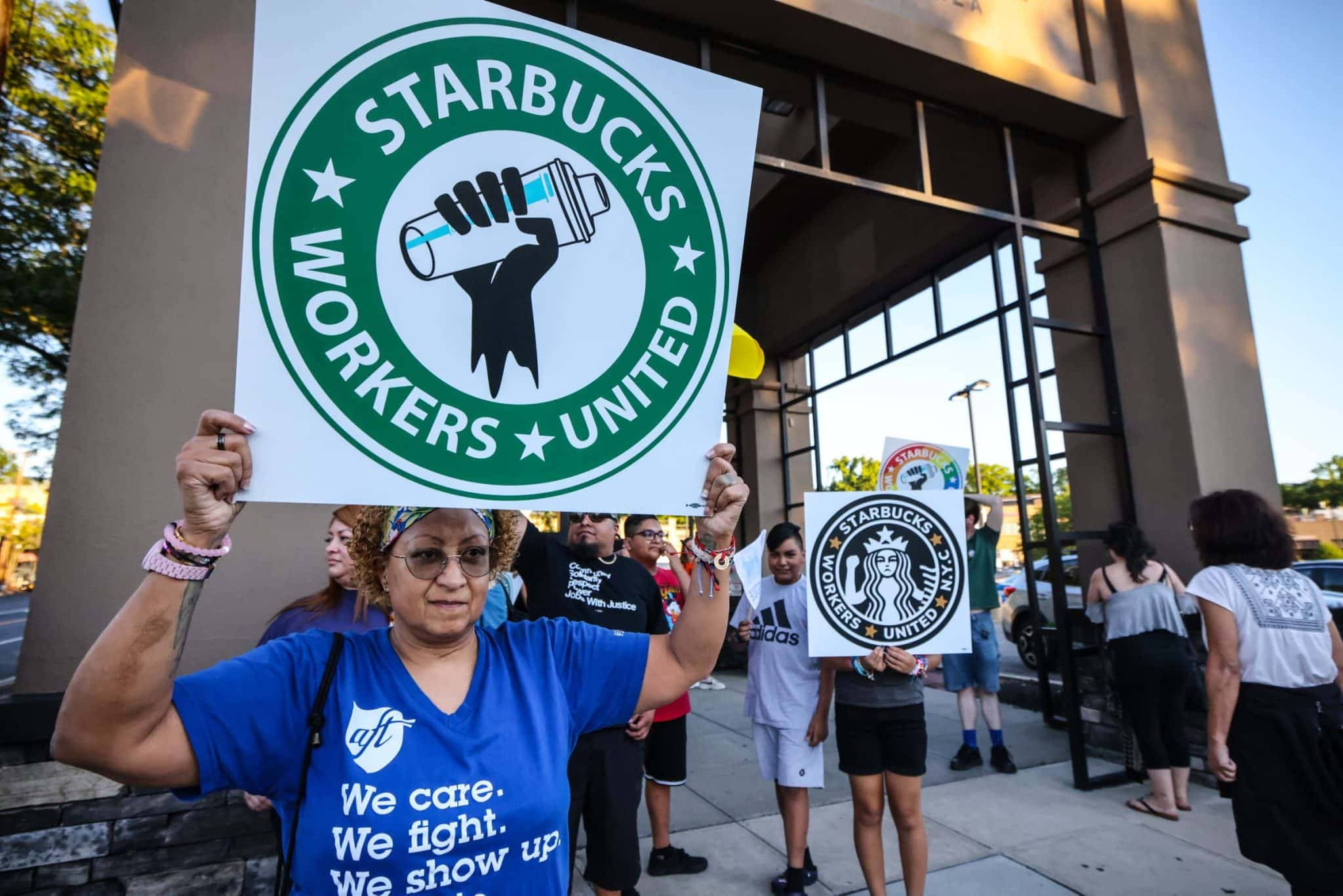After Starbucks dismissed seven employees who attempted to unionize its Tennessee location, a US government agency secured a court order requiring the firm to rehire them. Starbucks now wants the Supreme Court to limit the government’s power in such situations.
The justices will hear Starbucks’ appeal against the National Labor Relations Board, a federal organization that safeguards employees’ ability to organize, on Tuesday. If the court rules with Starbucks, it may make it more difficult for the NLRB to intervene when it claims corporate meddling in unionization efforts.

Starbucks Takes On The Federal Labor Agency Before The US Supreme Court
The hearing comes as tensions between Starbucks and Workers United, the union that organizes its employees, have begun to subside. In February, the two sides announced that they would resume negotiations with the goal of completing contract agreements this year. Starbucks and union representatives were set to meet Wednesday for their first bargaining session in over a year.
Since late 2021, workers at 420 company-owned Starbucks stores in the United States have voted to unionize, but none of those stores has reached a labor deal with Starbucks.
The issue before the Supreme Court began in February 2022, when Starbucks dismissed seven employees who were spearheading a unionization campaign in Memphis, Tennessee. Starbucks claimed the staff broke company rules by reopening the store after it had closed and invited non-employees, including a television news crew, to enter.
The National Labor Relations Board concluded that the firings were an improper interference with workers’ ability to organize. The agency discovered that Starbucks often permitted off-duty employees and non-employees to stay in the business after hours to create drinks or collect things.
The NLRB requested that a federal district court intervene and order Starbucks to rehire the employees while the case proceeded through the agency’s administrative proceedings. A district court judge agreed with the NLRB and ordered a temporary injunction, forcing Starbucks to rehire the employees in August 2022. After the 6th Circuit Court of Appeals upheld the ruling, Starbucks filed an appeal with the Supreme Court.
According to Workers United, five of the seven workers are still employed at the Memphis shop, with the remaining two active in the organizing drive. The Memphis store voted to unionize in June 2022.
Starbucks Takes On The Federal Labor Agency Before The US Supreme Court
Starbucks argued that the Supreme Court should intervene because federal appeals courts disagree on the conditions that the NLRB must achieve when seeking a temporary injunction against a firm. Starbucks claims that temporary injunctions can be a significant burden for businesses, as the NLRB’s administrative process might take years.
Since 1947, the National Labor Relations Act, which controls the agency, has permitted judges to approve temporary injunctions requested by the NLRB if they are deemed “just and proper.” In its examination of what happened at the Starbucks outlet in Memphis, the Sixth Circuit needed the NLRB to prove two things: that it had reasonable cause to suspect unfair labor practices occurred and that a restraining order would be a “just and proper” solution.
Other federal appellate courts, however, have required the NLRB to meet a four-factor criteria for obtaining restraining orders, including demonstrating that it was likely to prevail in the administrative matter and that employees would suffer irreparable injury if an injunction was not issued.
Starbucks has petitioned the Supreme Court to make the four-factor test the standard that all courts must follow when considering NLRB injunction cases.
“This court’s intervention is urgently needed,” Starbucks stated in an October court petition. “National employers like Starbucks must defend themselves against years-long injunctions under materially different tests depending on where alleged unfair labor practices occur or where employers reside.”

Starbucks Takes On The Federal Labor Agency Before The US Supreme Court
According to the NLRB, it already assesses the possibility of success before bringing a case to court, so whether courts employ two or four considerations is mainly irrelevant. The agency states that it rarely seeks temporary injunctions from the courts; in the fiscal year 2023, it received 19,869 allegations of unfair labor practices and allowed the filing of 14 lawsuits seeking temporary injunctions.
“The two-part inquiry undertaken by the Sixth Circuit and other courts … subjects board petitions to meaningful scrutiny, and does not call for courts merely to ‘rubber-stamp’ agency requests,” the National Labor Relations Board (NLRB) stated in a filing
SOURCE – (AP)









